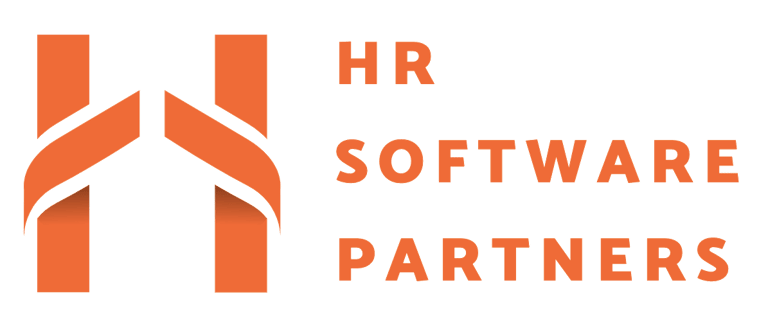Top HR Software Features Every Growing Company Needs in 2025
As businesses evolve and the workplace becomes increasingly digitized, HR software has transitioned from a luxury to a necessity for growing companies. With the rapid development of technology, the HR software landscape is constantly changing. To stay competitive and meet the demands of modern employees, companies must ensure their HR software includes the latest features tailored to enhance efficiency, employee satisfaction, and compliance. If you're looking to upgrade your HR tools or implement a new system, here are the top HR software features every growing company needs in 2025.
HRIS SELECTION STRATEGIESHR AUTOMATION


1. Comprehensive Employee Self-Service (ESS)
Employee self-service portals are no longer a nice-to-have feature—they’re essential. ESS allows employees to access and manage their information, such as payroll details, benefits enrollment, time-off requests, and performance reviews, without needing HR intervention.
Why It Matters:
Reduces HR Workload: Employees handle routine tasks themselves.
Improves Accessibility: Mobile-friendly ESS portals ensure employees can manage their information anytime, anywhere.
Boosts Employee Satisfaction: Employees appreciate having control over their personal information and HR-related tasks.
2. AI-Powered Recruiting and Applicant Tracking System (ATS)
Recruitment is one of the most challenging and time-consuming HR functions. An ATS with AI capabilities can automate resume screening, rank candidates based on predefined criteria, and even predict cultural fit.
Key Benefits:
Faster Hiring Process: Automates resume reviews and interview scheduling.
Better Candidate Quality: AI evaluates candidates based on skills, experience, and other metrics.
Enhanced DEI (Diversity, Equity, and Inclusion): Reduces unconscious bias by anonymizing candidate information.
Pro Tip: Look for software that integrates seamlessly with job boards and social media platforms to expand your talent pool.
3. Advanced Analytics and Reporting
Data-driven decision-making is the backbone of successful HR strategies. Modern HR software must provide advanced analytics that offer actionable insights into employee performance, retention rates, engagement levels, and more.
Features to Look For:
Customizable Dashboards: Tailor insights to your company's unique KPIs.
Predictive Analytics: Anticipate trends such as turnover risks or employee satisfaction levels.
Real-Time Reporting: Access up-to-date data instantly.
Having access to these insights enables HR teams to make informed decisions that align with company goals.
4. Integrated Learning Management System (LMS)
As upskilling and reskilling become critical in today’s job market, having an LMS integrated with your HR software is a game-changer. This feature allows companies to offer training programs, track progress, and ensure employees are continuously learning.
Benefits:
Streamlined Training: Centralizes all training resources and materials.
Employee Development: Tracks certifications and skill-building activities.
Improved Retention: Employees value companies that invest in their growth.
In 2025, companies that prioritize learning and development will stand out in attracting top talent.
5. Payroll and Benefits Management
Payroll is one of the most critical HR functions, and having it integrated within your HR software ensures accuracy, compliance, and ease of use. Modern systems go beyond just calculating salaries to include benefits management and tax compliance.
Must-Have Features:
Automated Payroll Processing: Reduces errors and ensures timely payments.
Benefits Administration: Simplifies enrollment and management of health, retirement, and other perks.
Global Payroll Capabilities: For companies with a distributed workforce.
Look for systems with compliance tools to navigate tax laws and regulations, especially if your company operates across multiple states or countries.
6. Time and Attendance Tracking
Managing employee hours and attendance is easier with automated time tracking features. Whether you’re dealing with remote teams, flexible schedules, or multiple shifts, modern HR software can handle it all.
What to Expect:
Biometric and Geofencing Options: Track hours with precision for in-office or remote work.
Customizable Schedules: Manage flexible working arrangements effortlessly.
Integration with Payroll: Automatically syncs hours worked for accurate compensation.
Accurate time tracking reduces disputes, ensures compliance, and improves productivity.
7. Employee Engagement Tools
With employee engagement directly tied to retention and productivity, HR software should include tools to measure and enhance it. Features like pulse surveys, feedback mechanisms, and recognition platforms can significantly improve workplace morale.
Features to Prioritize:
Pulse Surveys: Gather real-time employee feedback.
Recognition Platforms: Allow peer-to-peer recognition and rewards.
Engagement Analytics: Track trends and identify areas for improvement.
Engaged employees are more likely to stay loyal and contribute positively to company growth.
8. Compliance Management
Navigating labor laws and industry regulations can be challenging, especially as your company grows. HR software with built-in compliance tools can ensure you stay updated and avoid costly legal issues.
Key Capabilities:
Automated Compliance Updates: Stay current with local and global regulations.
Audit Trails: Maintain records for legal and regulatory requirements.
Policy Management: Distribute and track acknowledgment of company policies.
For global businesses, ensure the software supports GDPR, FLSA, and other regional laws.
9. Mobile Accessibility
In a world where remote and hybrid work is increasingly common, mobile-friendly HR software is essential. Employees and managers alike need to access HR tools on the go.
Why It’s Essential:
Convenience: Manage tasks like approvals, payroll, and time-off requests via mobile apps.
Improved Communication: Instant access to company updates and communication tools.
Enhanced Productivity: Enables quick responses to HR-related matters.
Choose software with a robust mobile app that mirrors the functionality of the desktop version.
10. Customizability and Scalability
As your company grows, so will your HR needs. Investing in software that is customizable and scalable ensures that it continues to meet your requirements as you expand.
Features to Look For:
Custom Workflows: Adapt processes to fit your unique business structure.
Scalable Architecture: Supports growing employee headcount and new locations.
Third-Party Integrations: Connect seamlessly with existing tools like Slack, Zoom, or accounting software.
Scalable software saves you from costly migrations and disruptions down the line.
Conclusion
The right HR software can revolutionize the way your company operates, but not all solutions are created equal. By prioritizing features like employee self-service, AI-powered recruitment, advanced analytics, and scalability, you can ensure that your HR tools meet the demands of a modern workforce in 2025.
Whether you're a small business on the rise or a growing enterprise, choosing HR software with these features will empower your team, streamline operations, and set the foundation for long-term success.
Ready to upgrade your HR software? Contact us at HRSoftwarePartners.com to find the perfect solution for your business needs.
